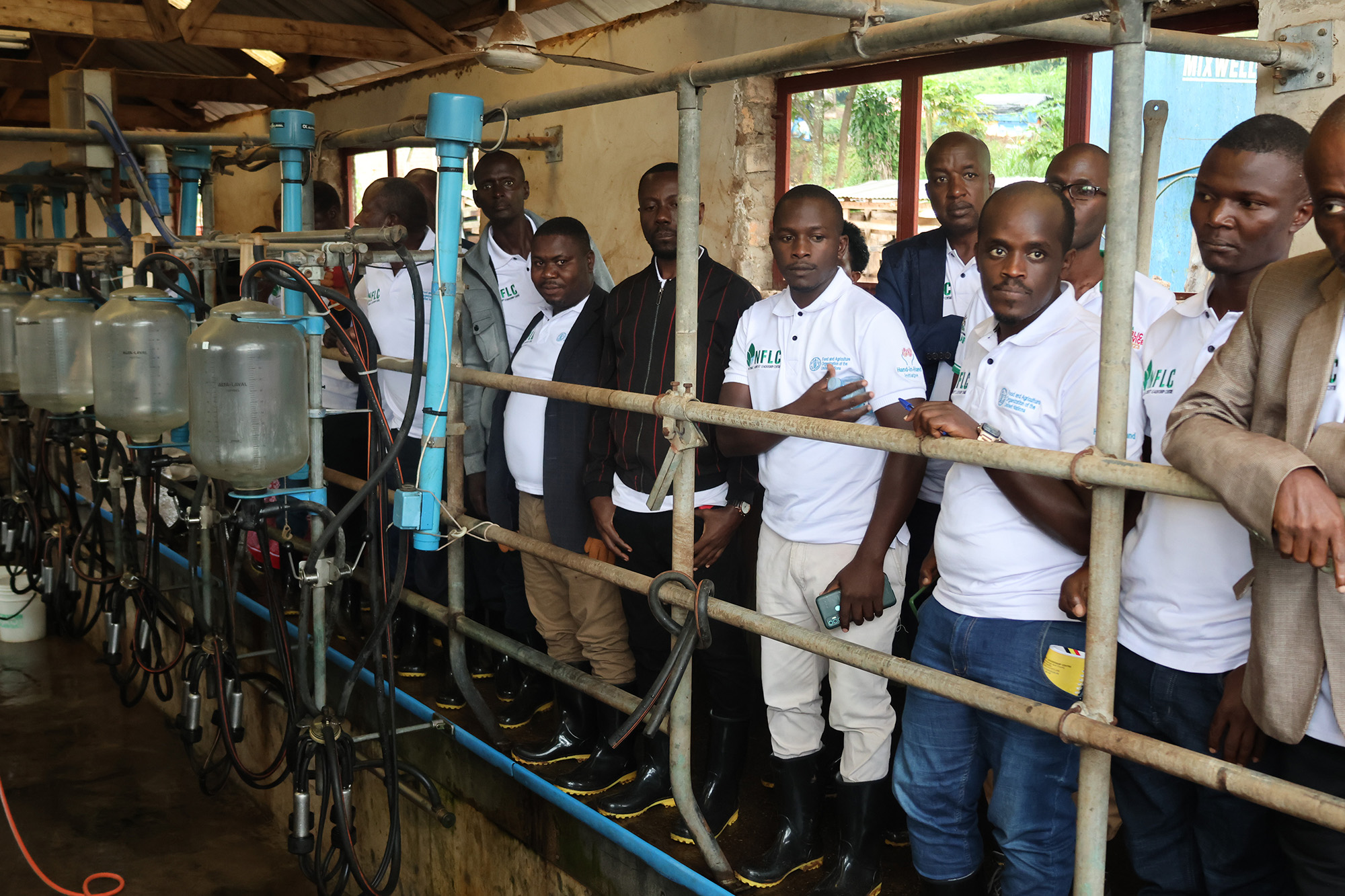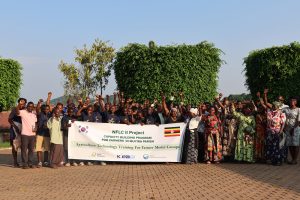The training took place on the 12th – 16th of February 2024 and was supported by the Technical Cooperation Programme (TCP) for accelerating Agri-Food Systems Transformation in Uganda through FAO’s ‘Hand in Hand’ (HIH) Initiative.
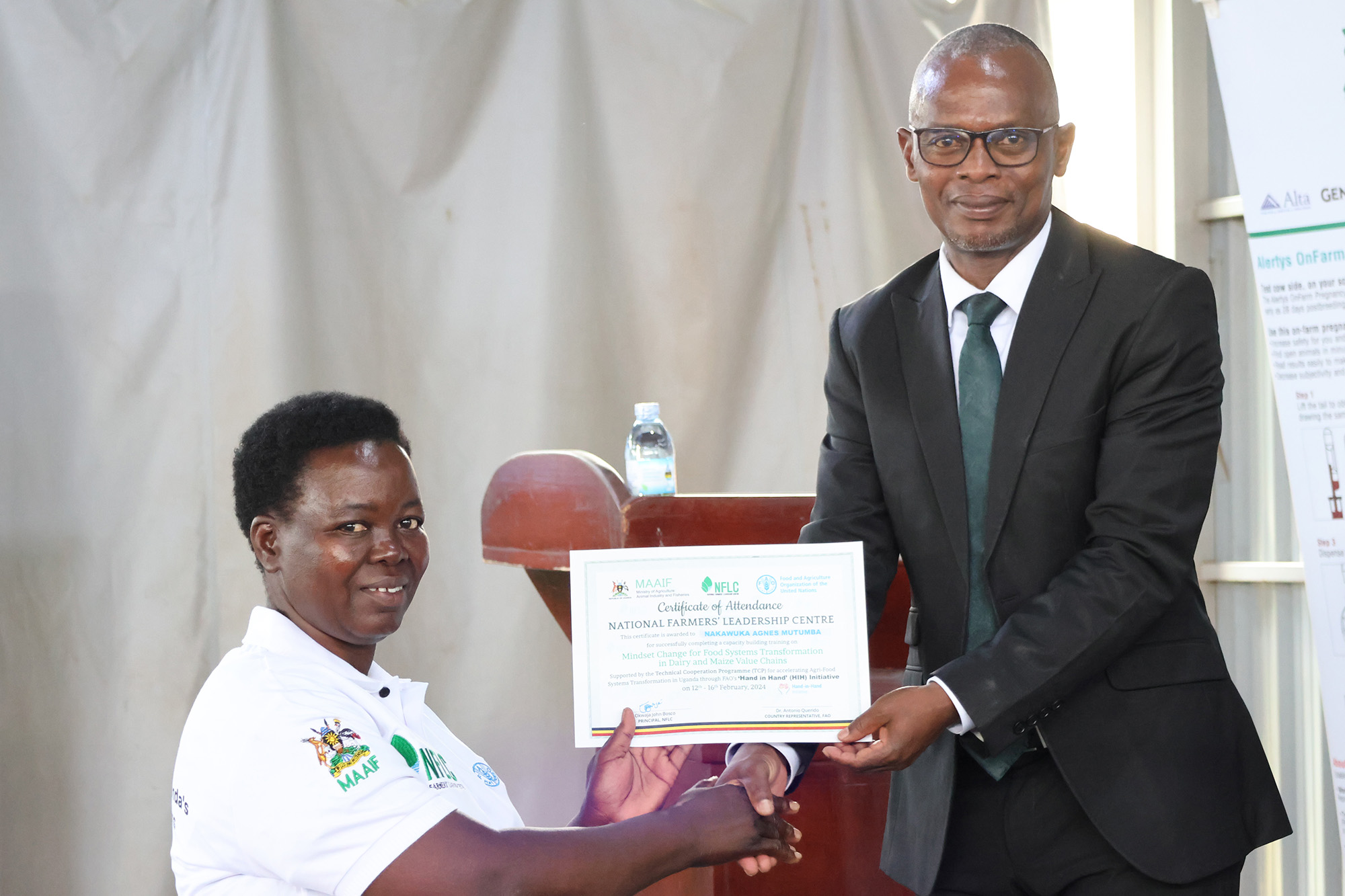
The training concluded on February 16, 2024, with the Under Secretary, Mr. Ronald Gyagenda Ssegawa, representing the Permanent Secretary.
Warm greetings were conveyed from Permanent Secretary Maj. Gen. (Rtd) David Kasura-Kyomukama and Ministers, including Hon. Frank Tumwebaze, Hon Hellen Adoa, Hon. Bright Rwamirama, Hon. Kyakulaga Fred Bwino, and other delighted ministry leaders. They expressed satisfaction with the institution’s dedication to contributing to National Development. Appreciation was extended to FAO and KOICA partners for their valuable support. Special thanks were given to the participating farmers for their active involvement and willingness to share information.
To make farming commercially viable, a collective approach is recommended. Key areas of focus include sourcing quality seeds or breeds, implementing effective agricultural practices, addressing pests and diseases, and understanding the evolving nature of the market. Farmers were urged to unite for enhanced bargaining power, recognizing that the market is now shaped by tastes and preferences. The importance of value chains was emphasized, with advice to farmers to specialize and add value to their produce for increased financial returns. Collaboration and specialization within the value chain were highlighted as crucial for success.
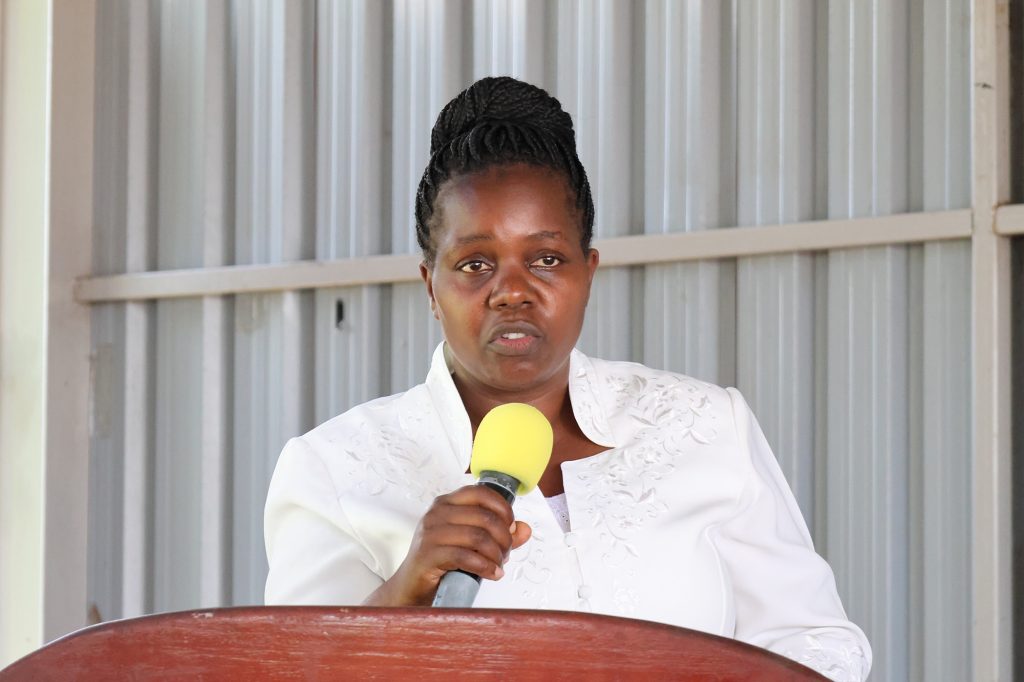
While opening the training, Ms. Beth Ansiimire was delighted to extend a warm welcome to all participants as we commence a training program centered on Mindset Change in Dairy and Maize Value Chain improvement for Food Systems Transformation. This endeavor is supported by the FAO’s ‘Hand in Hand’ (HIH) Initiative under the Technical Cooperation Programme (TCP) to accelerate Agri-Food System Transformation in Uganda, hosted at NFLC.
The collaboration between the Ministry of Agriculture, Animal Industry, and Fisheries (MAAIF) through the National Farmers Leadership Centre with FAO underscores their dedication to the project titled “Technical support to accelerate Agri-Food Systems Transformation in Uganda through the Hand-in-Hand Initiative.”
Uganda’s National Development Plan III (NDPIII) prioritizes agro-industrialization, emphasizing increased agricultural production, market access, value addition, and a conducive environment for the private sector. Agriculture is recognized as a catalyst for sustainable development, fostering economic growth, improving food security, and promoting equality.
The FAO introduced the Hand-in-Hand (HIH) Initiative to support targeted agricultural investments. In collaboration with MAAIF, FAO aims to address gaps in stakeholder participation in local-level food system transformation through sensitization, mobilization training, ongoing discussions, and backing the government’s commitment to food system transformation.
The Ministry of Agriculture, Animal Industry, and Fisheries actively participates in transforming the lives of Ugandans, aligning with the National Development Plan and Vision 2040. Their mission to shift from subsistence farming to commercial agriculture aligns with the vision of a competitive, profitable, and sustainable agricultural sector.
The ministry is presently implementing various programs, including the Agro-industrialization program, in line with the National Development Plan III and presidential directives on agricultural sector development. These programs prioritize seed and stocking material production, farmer mobilization and education, and partnerships with large commercial farmers to enhance household incomes and improve the quality of life for Ugandans.
Special acknowledgment is extended to the government of Korea for their support, particularly through KOICA programs, facilitating the NFLC Phase II project. NFLC, established to contribute to national transformation, focuses on mindset change, agricultural technology, and community transformation models, emphasizing self-help, diligence, and cooperation for sustainable development.
NFLC plays a pivotal role in organizing and implementing mindset change training programs for farmer leaders, civic and political leaders, extension workers, and other stakeholders in national development. The government of Uganda, through the ministry, has allocated a budget to NFLC, specifically for training farmers on mindset change and agricultural technologies, mobilizing and sensitizing farmers on government community development programs like PDM, and building a critical mass for PDM interventions in the parish.
The proposed nationwide training program by NFLC aims to equip farmers with mindset change and appropriate agricultural technologies, ultimately leading to increased household incomes and an improved quality of life for Ugandans.
Uganda, with its conducive natural environment and prolonged peace and political stability, offers excellent conditions for productivity and wealth creation. Farmers, especially leaders, are urged to take advantage of government programs like the Parish Development Model, support for commercialization under NAADS, Emyoga fund, and other social services to enhance their quality of life.
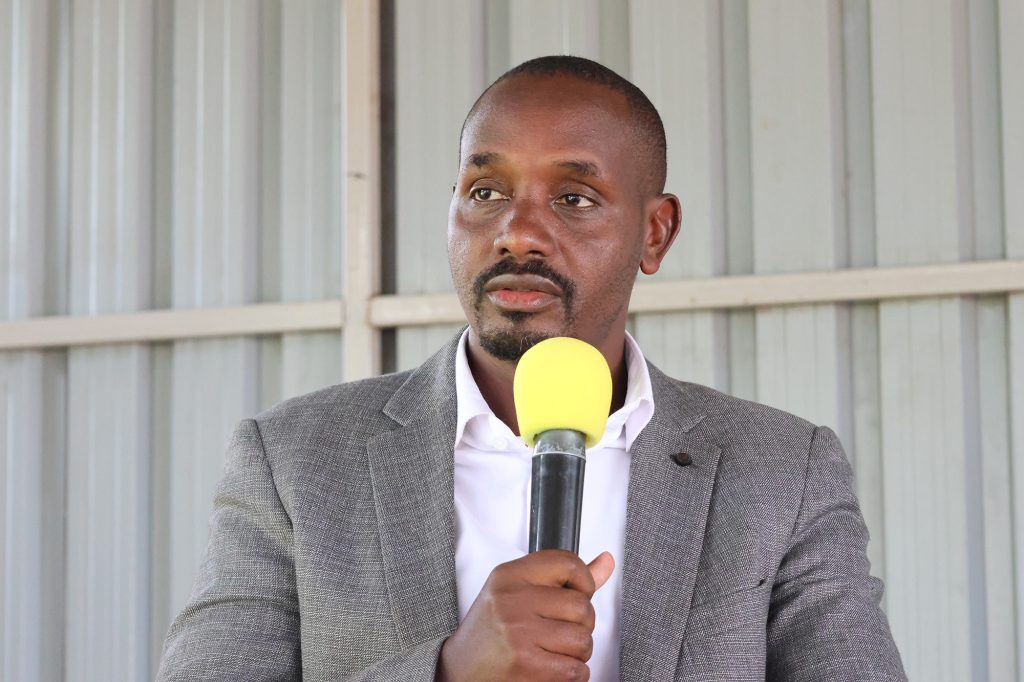
On behalf of the Food and Agriculture Organization of the United Nations (FAO), Mr. Edward Tanyima welcomed the participants to the training on mindset change in dairy and maize Value Chain Improvement for Food Systems Transformation, organized by the Food and Agriculture Organization of the United Nations (FAO).
- As you know, Uganda has made substantial strides in reducing poverty, decreasing from 33.8% in 1999/2000 to 20.3% in 2019/2020.
- About 26% of Ugandans, over 8 million people, are estimated to live in poverty, according to the 2019/2020 Uganda National Household Survey.
- Uganda’s achievement of SDGs, particularly SDGs 1, 2, and 10, relies on transforming its agrifood system.
- Innovative interventions in the agriculture sector are crucial for Uganda’s agrifood transformation, impacting positively on SDGs.
- Uganda prioritizes agriculture through NDP3, emphasizing key interventions for increased production, market access, value addition, and institutional strengthening.
FAO is supporting Uganda through a TCP, aiming to enhance evidence-based decisions, foster partnerships, and govern programs for accelerated agricultural transformation and sustainable rural development.
The TCP focuses on:
- Strengthening stakeholders’ capacity for participatory food system transformation.
- Piloting approaches in key value chains to address challenges and tap into opportunities.
- Enhancing the capacity of public and private sector actors to increase investments for agri-food system transformation.
We hope to use TCP results as a proof of concept for the scaling-up phase of the HiH initiative. FAO collaborates with MAAIF through the National Farmers Leadership Centre for this training, aiming to provide understanding, identify opportunities, and develop investment action plans for food system transformation.
I express gratitude to MAAIF/NFLC for their efforts and coordination, wishing all participants a successful training.
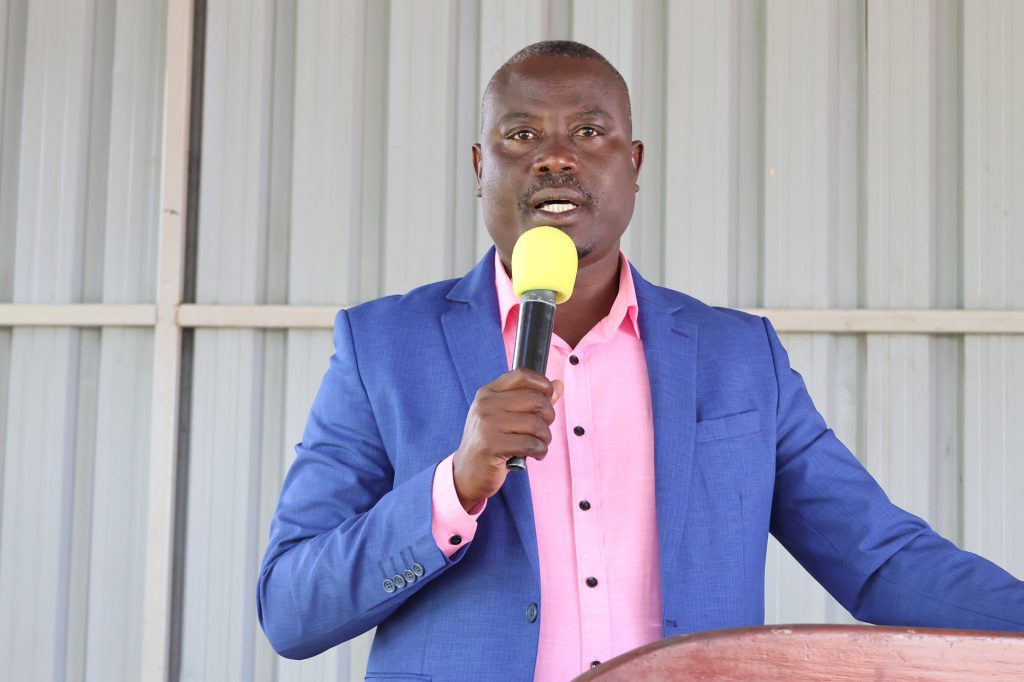
The Principal expressed gratitude to the ministry for the financial support, acknowledging its role in enabling the Center to conduct its training programs. He affirmed a commitment to persist in fulfilling the given mandate. Emphasizing the challenges faced by participants, including inadequate resources, market issues, and climate changes, he encouraged them to proactively seek solutions before turning to the government for assistance. Furthermore, he highlighted the government’s UGIFT initiative, which supplies farmers with irrigation equipment to address drought challenges. The Principal urged participants to apply the acquired knowledge from the training in practical implementation and implementation.


